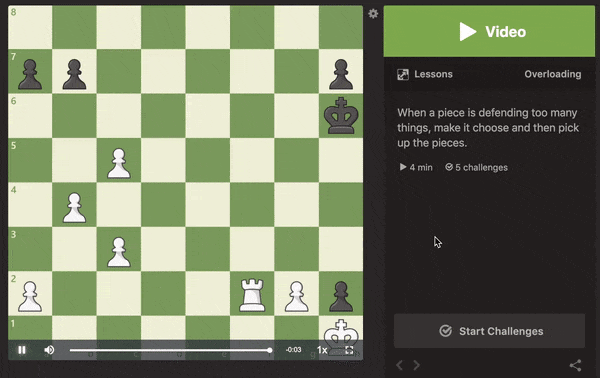
Chess Lessons That Will Make You A Winner
Last year, I wrote an article intended for players rated below 1000 on Chess.com. Judging by your response, the article was helpful for people just starting at chess.
Of course there were many comments that can be summarized like this: "I am rated over 1000; what should I do to reach 1500?" This question is not as simple as the question about getting to 1000. As you might remember, here is what I recommended for people rated below 1000:
Players of this level don't need to remember any openings or have even basic endgame knowledge. It is also a waste of time for them to study isolated pawns or weak squares. At this stage of their chess development all they need to learn is to capture as many opponent's pieces and pawns as they can!
You see, it is relatively simple: Just grab whatever material you can and you'll quickly see progress. It is more complicated than that above a 1000 rating. Even though your opponents are still going to blunder pawns and pieces here and there, it is not going to happen every single move. Moreover, it is time to learn some tactical patterns, basic opening principles, etc. As you can see, it is way more complicated than the "greed Is good" principle.
I deal with this kind of problem on a daily basis: How to introduce my less experienced students to this magical kaleidoscope of chess? Where to start? Fortunately, before we said farewell to the year 2018, Chess.com prepared a very nice gift to both teachers and students of the game!
The new lessons take care of all the above-mentioned problems!
Each lesson takes about three minutes and teaches a small but very important chess concept. After the lesson you are offered a bunch of exercises to solve. The lessons intended for beginners are split into four parts:
1: "Winning the game" teaches you most basic checkmates
2: "Capturing pieces"—yes, greed is still good! ![]()
3: "Finding checkmate": introduces basic tactical patterns
4: "First moves" explains the basic opening principles
If you get a firm grasp of the material covered in just these four chapters, it should be more than enough to push your Chess.com rating above 1500! Let me demonstrate what I mean with a game by two players rated slightly above 1000. I will refer to the chapters of the new lessons that deal with the particular problems.
Black breaks basic opening principles: see "1.e4 Defenses For Black."
Blunder! See "Counting captures."
Blunder! See "Tactics and hanging pieces."
Blunder! See "Counting captures."
Blunder! See "Pins."
At first White missed the winning pin, but then his opponent gave him the second chance! See "Pins," "Piling up."
Black missed a checkmate in two moves. See the chapter "Assisted Checkmates."
It is amazing that most of the mistakes made by the opponents could be easily avoided if the players studied just the first four chapters for beginners!
As you could see, the new lessons are simple, user-friendly and yet a very powerful tool that should help you achieve your chess goals!







